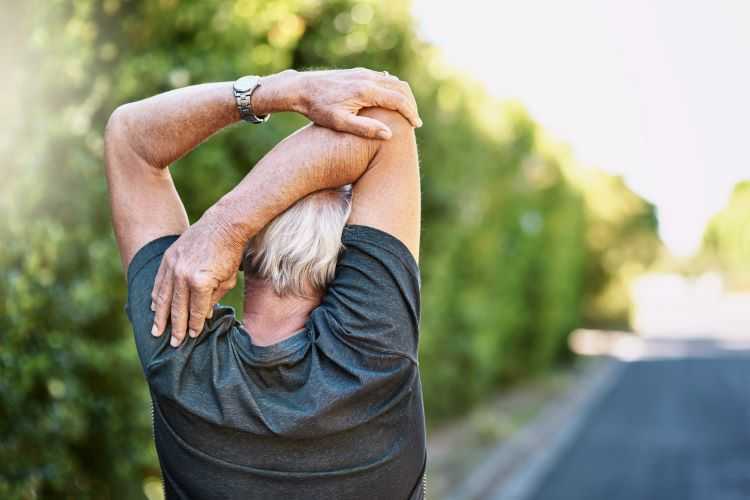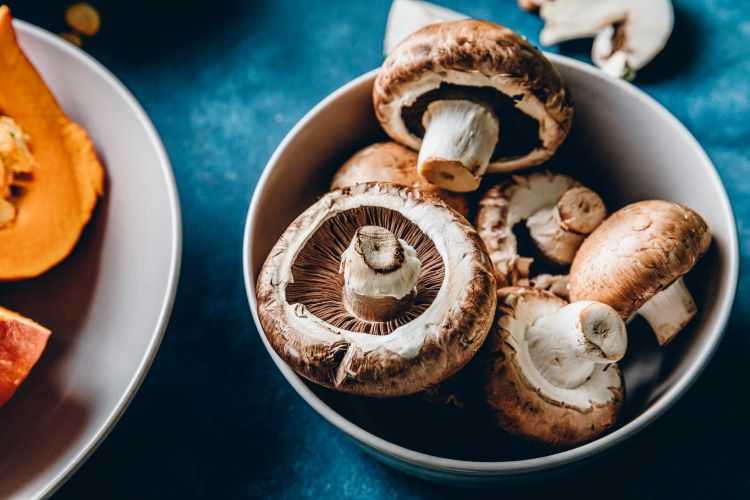- Vitamin D is needed for calcium absorption. It also helps with bone health, immune function and muscle function.
- Vitamin D is naturally made when our skin is exposed to sunlight. Most of the vitamin D in our body comes from this source.
- The only foods that contain substantial amounts of vitamin D are oily fish, eggs, UV-light exposed mushrooms and fortified margarines and milk.
- People with dark skin, those who avoid the sun and people who spend a long time indoors are at risk of vitamin D deficiency.
3 minute read
Vitamin D is both a nutrient we eat and a hormone our bodies make. We need vitamin D, but it doesn't all have to come from your diet. That’s important to know because there are few foods that are reliable sources of vitamin D. If you spend enough time in the sun, then your body can make all the vitamin D it needs.
Vitamin D has several important functions. These include:
- regulating the absorption of calcium and phosphorus
- growth and development of bones and teeth
- helping with normal immune system function.
Bone and muscle health
Vitamin D is a part of a large bone-making and maintenance family. Vitamin D’s role in bone growth is to maintain blood concentrations of calcium and phosphorus. The bones grow denser and stronger as they absorb and deposit these minerals.
Severe vitamin D deficiency causes impaired bone mineralisation, resulting in 2 distinct diseases. In children, the disease is called rickets. Rickets is seen as a softening and weakening of bones, causing bowed legs and knocked knees. Rickets is rare, but is a growing problem in Australia.
In adults, the disease of vitamin D deficiency is called osteomalacia. Osteomalacia results in bone and muscle pains, and an increased risk of fractures.
Osteoporosis is a condition similar to osteomalacia. In this case, it is from a decrease in bone mass rather than a change in the mix of minerals in the bones. But the end result is a higher risk of fractures. Having a good body store of vitamin D can help reduce the risk of bone fractures.
As well as keeping bones healthy, vitamin D helps with balance. If a person is low in vitamin D, and has poor muscle strength, they may be at greater risk of falls. Falls are a serious health concern, especially among elderly, because of the injuries they cause. Because vitamin D is only found in a few foods, with the sun being the major source, less-mobile people are at a greater risk of deficiency.

Other roles of vitamin D
Vitamin D is not just about healthy bones. There is a growing understanding that vitamin D targets other tissues including cells of the immune system, brain and nervous system, pancreas, skin, muscles and cartilage, and reproductive organs.
Because vitamin D has many functions, it may play a role in:
- diabetes
- heart disease
- multiple sclerosis
- obesity
- autoimmune diseases
- cancer
- respiratory disease
- mental health conditions.
The evidence for many of these roles for vitamin D is still emerging, but it shows the importance of having an adequate store of vitamin D for good health.
People at risk of vitamin D deficiency
Because the sun is our main source of vitamin D, limited sun exposure explains why many people are at risk of deficiency. Vitamin D deficiency is not an isolated condition, and deficiency can be endemic in certain population groups such as:
- older or disabled people in residential care or who are house-bound
- people who are fair-skinned and those at risk of skin cancer who avoid sun exposure
- people with dark skin (which blocks more UV light) living in more southern or northern latitudes
- people wearing modest dress that covers most of their skin
- people who have a disease that affects vitamin D absorption such as coeliac disease
- people with liver or kidney disease which affects vitamin D metabolism
- breast-fed babies from vitamin D deficient mothers
- people who are obese
- people who smoke.
Food sources of vitamin D
Most adults, especially in sunny regions, do not need to make a special effort to get vitamin D from food. That is fortunate because very few foods contain vitamin D. The best dietary sources of vitamin D are:
- fatty fish such as salmon, herring, sardines and mackerel
- eggs
- mushrooms
- fortified margarines
- fortified milk and yoghurt.
In Australia, vitamin D fortification is mandated for margarines. It is voluntary for low-fat milk, powdered milk, yoghurt and soy milk.
Mushrooms can be a good source of vitamin D as they increase their vitamin D production when exposed to UV light. Putting mushrooms out in the sun for an hour either sliced or gill-side up will increase their vitamin D content.

Safe sun exposure
With so few foods being a reliable source of vitamin D, it is the sun we turn to for most of our needs. Sun exposure accounts for more than 80 percent of the vitamin D in your body.
But prolonged exposure to sunlight does present the risk of skin cancer. This is very relevant in a country like Australia. The Cancer Council advises that when UV levels are 3 or above, extended sun exposure is not recommended. This is even for those with vitamin D deficiency.
For most people, incidental exposure of the hands, face or arms during a clear summer’s day several times a week should be enough to maintain vitamin D levels. In the winter months, people in the southern regions of Australia may need 2 to 3 hours of sunlight exposure to the face, arms and hands over a week.
The pigments of dark skin provide some protection from the sun’s damage, but they also reduce vitamin D synthesis. Dark-skinned people need longer sunlight exposure than light-skinned people.


A diet for someone at risk of vitamin D deficiency needs to be carefully planned. An Accredited Practising Dietitian (APD) can help you meet your individual needs.
We recommend seeing a dietitian if you:
- have been diagnosed with low vitamin D levels
- need nutritional advice to help ensure you're meeting your individual nutrient requirements
- would like personalised advice and support from a professional
- if you have specific nutritional needs, such as during pregnancy or for children.
Accredited Practising Dietitians (APDs) are university-trained nutrition experts. They can help you with personalised, easy-to-follow and evidence-based advice.
APDs are Australia's most trusted dietetics professionals.
- The sun is your best source of vitamin D, but you still need to be ‘sun smart’ and protect yourself with sunscreen and appropriate clothing.
- The best food sources for vitamin D include eggs, oily fish such as salmon and herring, and mushrooms that have been exposed to UV light
- If you are concerned about your vitamin D levels, seek advice from your GP.